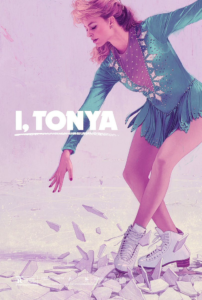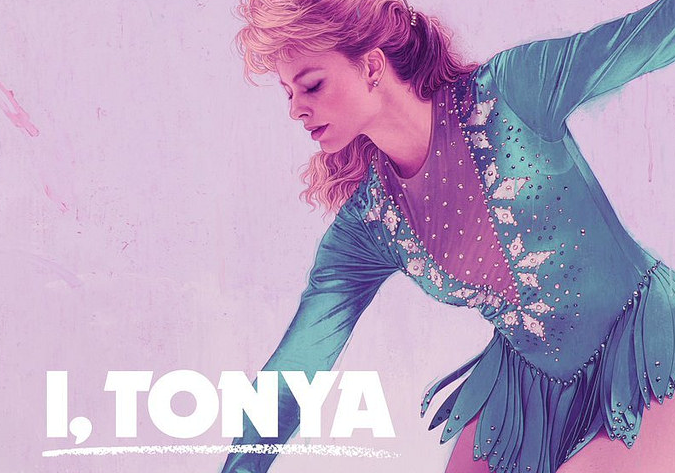08 March 2018
I, Tonya
A film by Craig Gillespie
reviewed by Adam McCormack
Star rating: ****
 Does the American Dream still exist? Tonya Harding grew up in a poor working class family and, funded by her mother’s work as a waitress, rose to be a world-class figure skater and the first to land the extremely difficult triple axel in competition. This should be confirmation that anything is possible in the US, but for Tonya her background proves to be a significant obstacle in getting the scores she deserves, an element of which is highly subjective in the domain of the snobbish element of the sport that regards her as little more than “trailer trash”. The other issue for Tonya is that she cannot escape her background, the pushy abusive mother, the loser husband (also violent) and his delusional friend Shawn, who believes he is a bodyguard and international espionage expert.
Does the American Dream still exist? Tonya Harding grew up in a poor working class family and, funded by her mother’s work as a waitress, rose to be a world-class figure skater and the first to land the extremely difficult triple axel in competition. This should be confirmation that anything is possible in the US, but for Tonya her background proves to be a significant obstacle in getting the scores she deserves, an element of which is highly subjective in the domain of the snobbish element of the sport that regards her as little more than “trailer trash”. The other issue for Tonya is that she cannot escape her background, the pushy abusive mother, the loser husband (also violent) and his delusional friend Shawn, who believes he is a bodyguard and international espionage expert.
The film takes us through Tonya’s life from child prodigy to US champion and her fall from grace following the physical attack on her arch-rival, Nancy Kerrigan, interspersed with present day interviews to give some colour and perspective. There is great humour in all of this, helped by regular asides to the audience throughout the action, but this is a tragic story of a woman unable to escape her background, who falls prey to her own ambition and that of her entourage. Allison Janney, as Harding’s mother is a star turn as the archetypal pushy sports mother – the kind of woman that Sarah Palin described in her “Hockey Mom” joke. She is physically abusive and profane, and just when you think she is showing some compassion and motherly love we realise that she is still trying to serve her own ends. Margot Robbie is convincing as a driven athlete whose compulsions are sometimes positive, in driving her intensive training, at other time negative, in effecting her health and lifestyle.
The story does create a case for the defence of Harding, to the extent that she may not have realised what might happen to Kerrigan (she claims that she only assented to the sending of death threats). It also raises questions as to why she was allowed to go to the Lillehammer Winter Olympics to compete against Kerrigan when the case was unresolved – the reason it seems was the power of the media, who were desperate for the rivalry to play out on the ice – as well as why she was forced to apologise for her hindering of the prosecution, which was effectively used as an admission of guilt. Harding was banned from the sport, which was the only thing she ever knew how to do. Many of us remember the Harding-Kerrigan affair from the time, but now we have a fresh perspective on it and one that does not show the sport of skating in a positive light, regardless of whether we believe Harding’s side of the story.


